My application receives instructions from my client.
On each instruction I want to execute code from the received timestamp + 10 seconds.
To test the accuracy of my code I mocked up this simple console test:
static DateTime d1 = DateTime.Now;
static Timer _timer = null;
static void Main(string[] args)
{
_timer = new Timer(Callback, null,200, Timeout.Infinite);
d1 = DateTime.Now;
Console.ReadLine();
}
private static void Callback(Object state)
{
TimeSpan s = DateTime.Now - d1;
Console.WriteLine("Done, took {0} secs.", s.Milliseconds);
_timer.Change(200, Timeout.Infinite);
}
On running it I had hoped to display:
Done, took 200 milsecs.
Done, took 200 milsecs.
Done, took 200 milsecs.
Done, took 200 milsecs.
Done, took 200 milsecs.
Done, took 200 milsecs.
But it does not.
I get random values for 'milsecs'.
NB My actual code will not always be using 200 milliseconds.
Example Screenshot:
